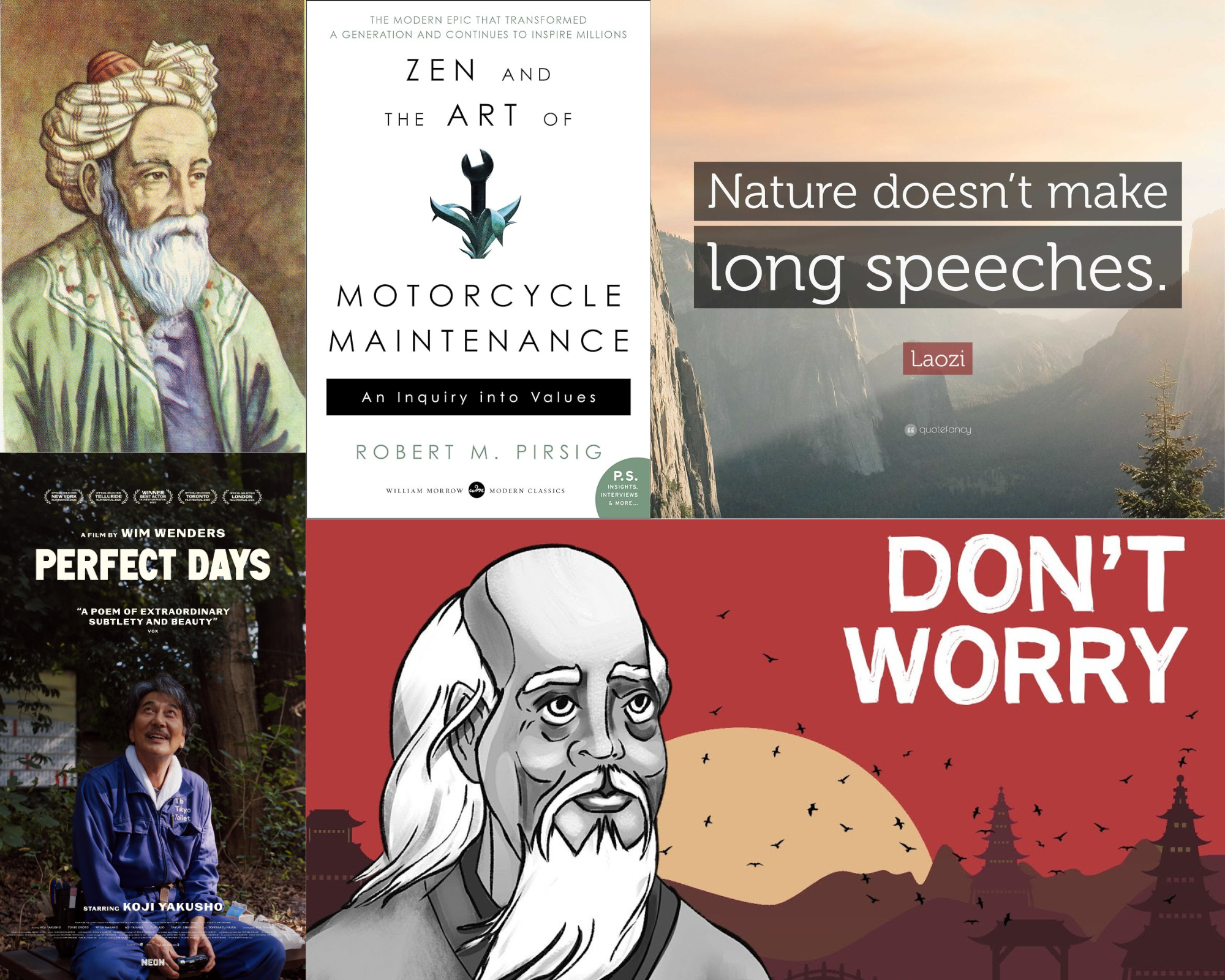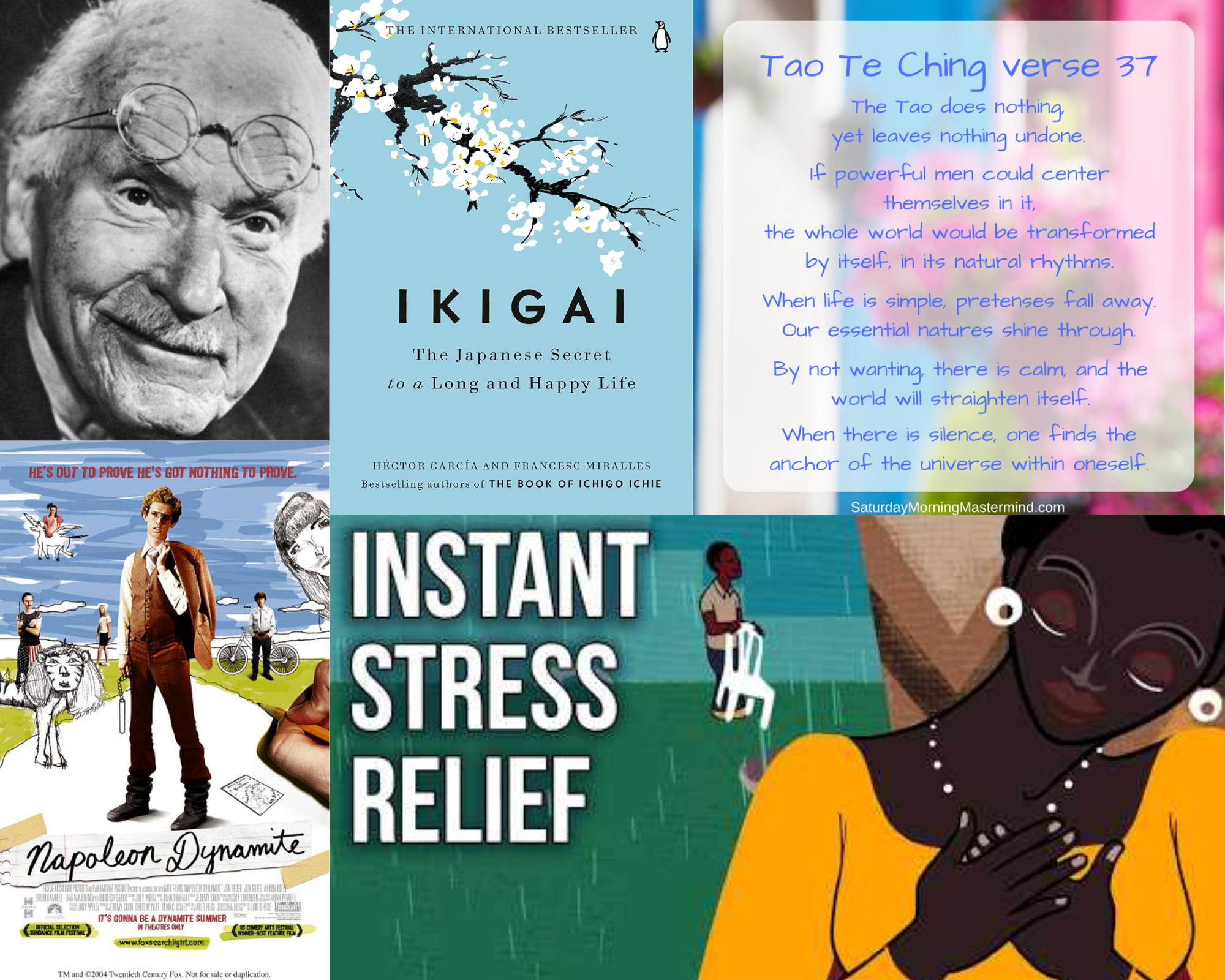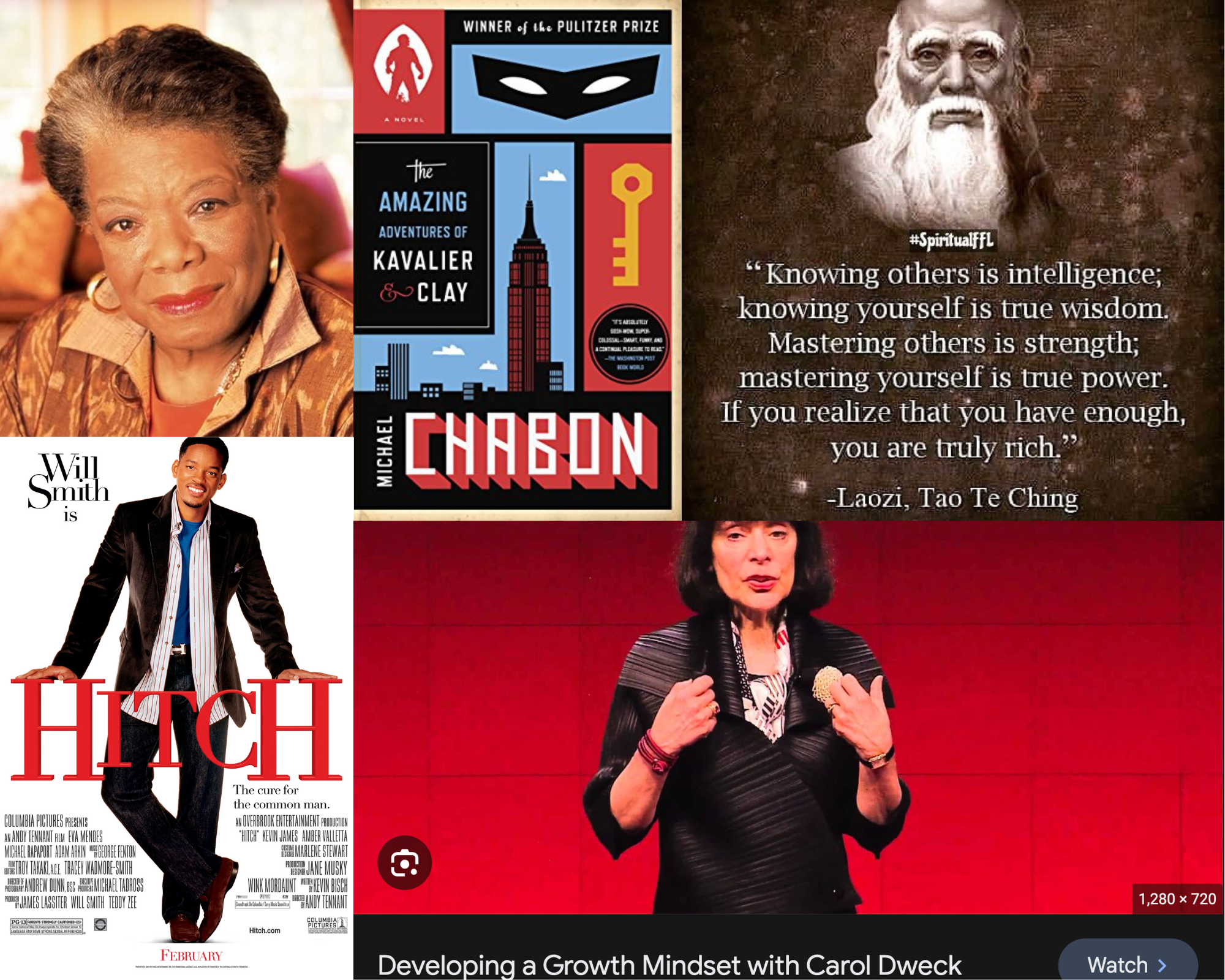Sunday Supplement #170 (August 11th, 2024)
Below is another Sunday Supplement with a quote worth sharing, a book worth reading, a movie worth watching, brainfood worth consuming, and a spiritual passage worth pondering.
Please take something away from these recommendations that enriches your week ahead!
Quote of the Week:
“Be happy for this moment. This moment is your life.”
– Omar Khayyam
Book of the Week:
Zen and the Art of Motorcycle Maintenance – Robert M. Pirsig
Robert M. Pirsig’s Zen and the Art of Motorcycle Maintenance is a fictionalized autobiography of a 17-day motorbike journey with his son in 1968.
During the trip, the father examines how we live as a species and meditates on the meaning of quality. He recounts an earlier form of himself’s pursuits of this information and how he views the experience of life at the present moment.
Pirsig’s book is dense, and I recommend it only for those interested in tackling a challenging read.
Zen and the Art of Motorcycle Maintenance received 121 rejections before being accepted by a publisher who didn’t believe the book would sell. It’s sold over 5 million copies so far.
Movie of the Week:
The Wim Wenders film written by Takuma Takasaki and Wenders follows the life of Hiriyama, a man who cleans public toilets in Tokyo, lives a life in simplicity, and encounters that lead him to reflect on himself.
I found it a slow-burn story with a powerful reflection of life. Sometimes, people watch movies for intense action with extreme highs and despairing lows. This isn’t that kind of movie.
Koji Yakusho portrays Hiriyama brilliantly, embodying a man who finds tranquility and beauty in his simple existence yet doesn’t block out the sadness and frustrations of life.
Perfect Days was nominated for the Academy Award for Best International Feature Film. Yakusho won Best Actor at the Cannes Film Festival. It’s a film worth checking out for those whose interest has been piqued.
Brainfood of the Week:
Don’t Worry, Everything is Out of Control | Einzelgänger
Einzelgänger’s YouTube channel creates videos that explore different people and ideas of history with the aim of inspiring, resonating, and entertaining.
In this video, Einzelgänger discusses how our busy lives can lead to stress, exhaustion, and burnout, which can cause illness and depression. He then highlights Taoist writings that offer solutions that can help relieve stress.
There are five different Taoist antidotes Einzelgänger goes over in the video. The two I’ll preview here are to stop looking for happiness and the internal law.
The video explains how worrying about getting or not getting happiness leads us to forever look outside of ourselves for it. The internal law explains how it’s not the world that decides how we feel; it’s our minds.
I’ve featured Einzelgänger’s channel in previous Sunday Supplements. If you enjoyed this video, check out the other posts or his channel on YouTube.
Closing Spiritual Passage:
“Nature doesn’t make long speeches. A whirlwind doesn’t last all morning. A cloudburst doesn’t last all day. Who makes the wind and rain? Heaven and earth do. If heaven and earth don’t go on and on, certainly people don’t need to.”
– Tao Te Ching (Verse 23)
The Tao Te Ching is a central Taoist text associated with the philosopher Lao Tzu. Taoism holds that humans should live in balance with the universe (the Tao – the Way).
In this verse of the Tao Te Ching, I’m reminded to live in the moment. We can often get lost in thoughts of the past or worries of the future, but our world exists in the present.
I don’t believe we should completely ignore the past and future. Gathering clouds can be plans for the future, and storms can leave destruction in their path to remember them by.
However, this verse reminds us not to dwell too long on events outside our immediate control. It’s nice to connect to the moment you’re in.
Remember to ground yourself in the present moment when you’ve been caught up in a narrative that has pulled you away from it, and have a blessed week ahead!




